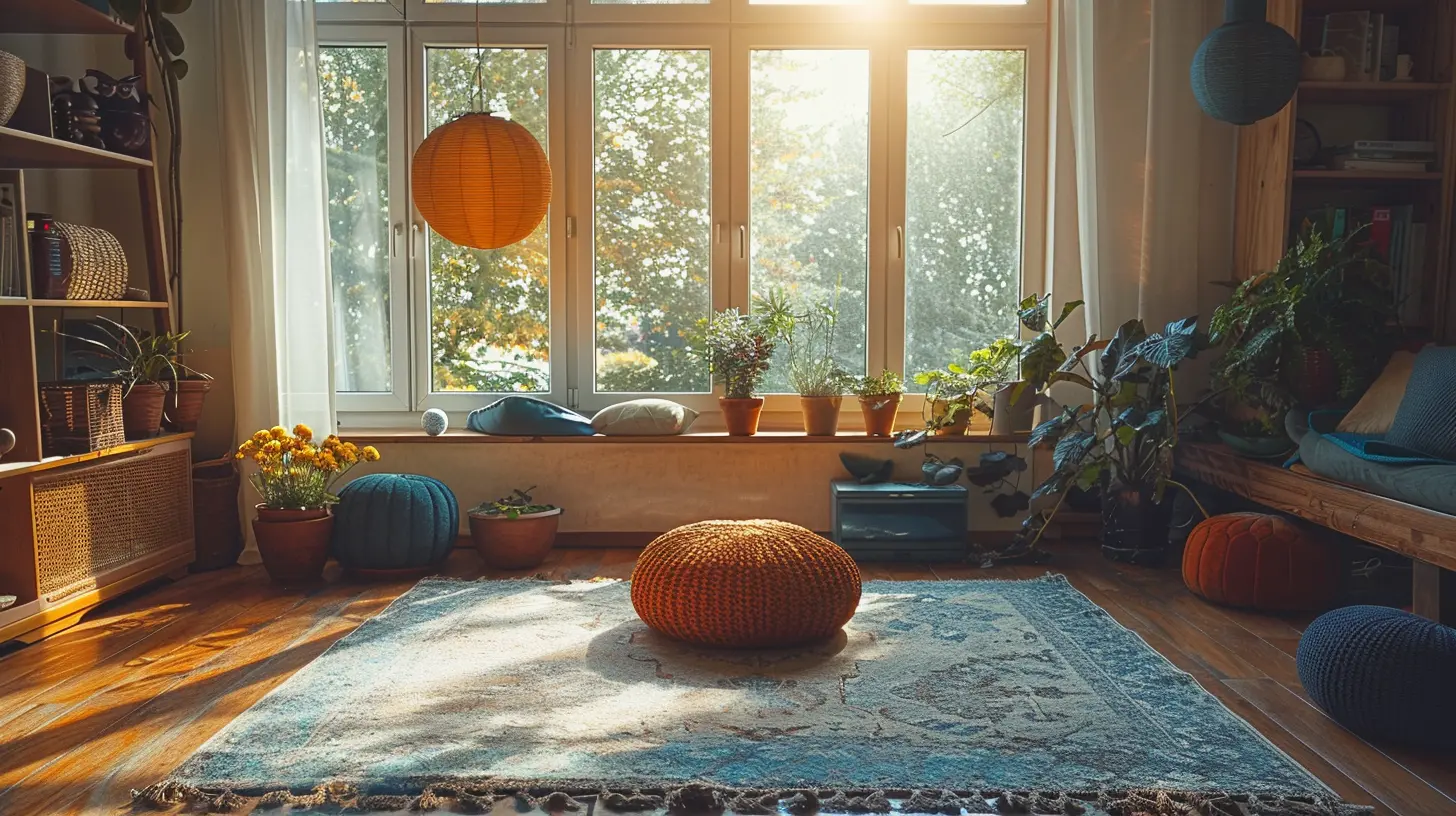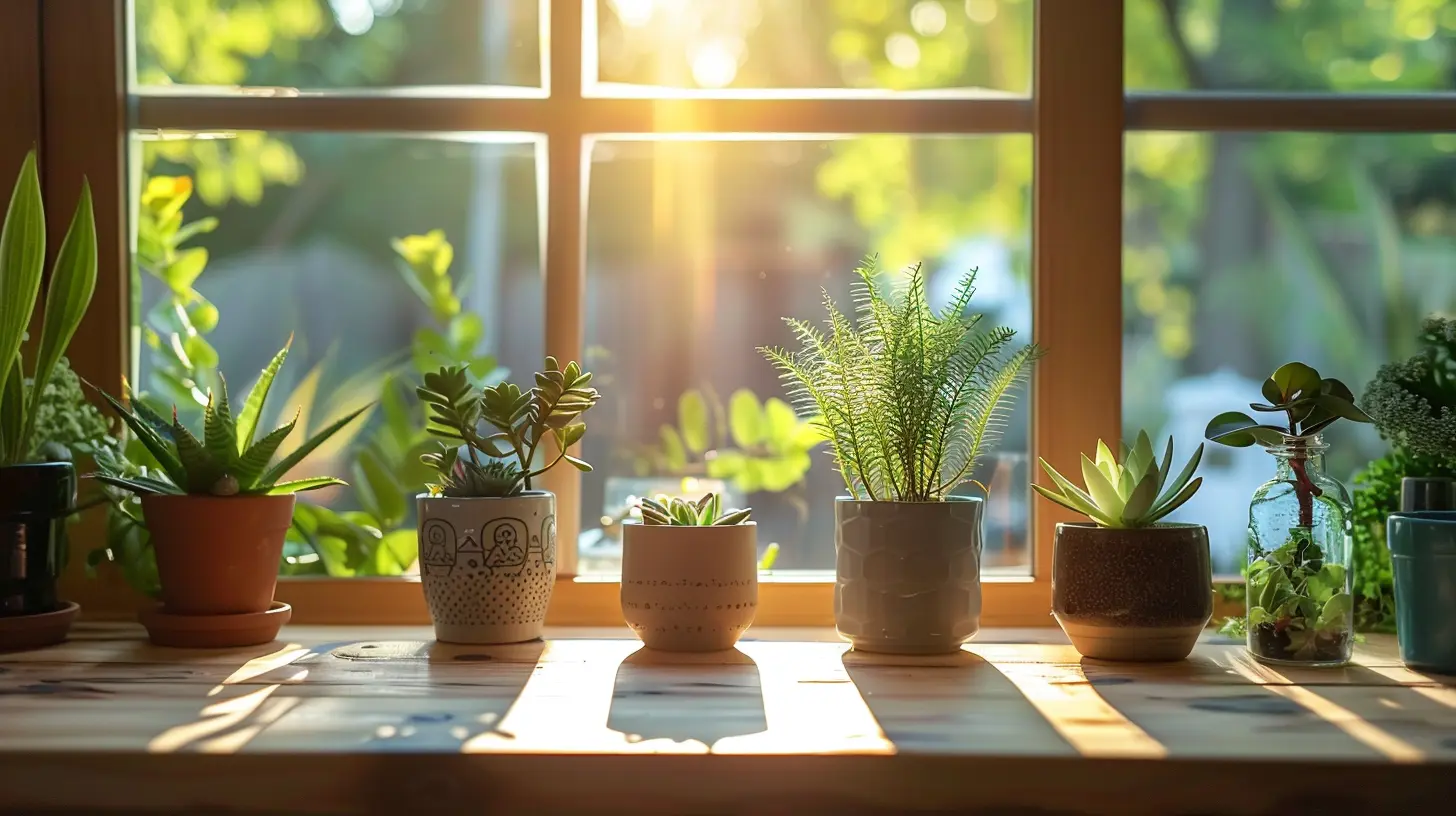Can Decluttering Your Space Improve Your Energy?
24 July 2025
Have you ever walked into a messy room and instantly felt your mood dip? Or maybe you’ve tried to work at a cluttered desk and found it impossible to focus. You’re not alone. Clutter doesn’t just take up physical space—it takes up mental space too. But can decluttering your space actually improve your energy? Spoiler alert: absolutely, yes!
In this article, we’re diving deep into how clearing out the chaos can recharge your mind, body, and even your soul. We’ll chat about why clutter affects you more than you realize, the science behind it, and some practical steps you can take to lighten the load—both literally and emotionally.
What Is Clutter, Really?
Let’s start at the beginning. Clutter isn’t just about having too much stuff—it’s about holding onto things that no longer serve a purpose. Maybe it’s clothes that don’t fit, broken gadgets, paper piles, or random trinkets collecting dust. Clutter can be physical, digital, or even emotional.Think of your space like your phone's RAM. The more junk running in the background, the slower everything gets. Your mind is kind of the same—it needs space to breathe and function properly. When your environment is cluttered, it’s like having a thousand pop-up ads in your brain. Exhausting, right?
The Clutter-Energy Connection
So how exactly does clutter drain your energy?1. Mental Fatigue from Visual Noise
Every item you see is a piece of data your brain has to process. When your surroundings are jam-packed, your brain is on overdrive, whether you realize it or not. That constant stimulation can lead to mental fatigue and burnout. Even if you think you’ve tuned it out, your subconscious is paying attention.2. Decision Fatigue Is Real
Should I toss this? Where does this go? Have I used this in the last year? These tiny decisions pile up fast. And the more decisions you’re forced to make about stuff, the less brainpower you have for the big things in life. Imagine trying to write a novel or meal prep for the week when you're constantly sidetracked by a mess.3. Clutter Increases Stress Levels
Research has shown that people who live in cluttered spaces have higher levels of cortisol, the stress hormone. If your home feels more like a storage unit than a sanctuary, your nervous system picks up on that—and it stays in a low-level “fight or flight” mode. Yikes.4. It Disrupts Your Energy Flow (Literally and Metaphorically)
In feng shui (the ancient Chinese art of arranging spaces), energy—or “chi”—needs open, uncluttered pathways to flow freely. Think of clutter like boulders blocking a river. Whether you believe in energy flow or not, the metaphor holds up: blockages in your space can create blockages within you.
The Emotional Weight of Stuff
Let’s be real—stuff holds stories. That concert ticket from 10 years ago, a sweater your ex left behind, those shoes you bought during a retail therapy binge. Sometimes, our things hold emotional baggage, and when we don’t let go of the stuff, we don’t let go of the feelings either.Decluttering can be emotional, sure. But it can also be powerfully liberating. You’re reclaiming your space, your energy, and your story.
What Happens When You Declutter?
Alright, so what kind of magic can you expect once you start clearing things out?1. More Mental Clarity
Suddenly, you can think again! A clean, organized space is like a deep breath for your brain. You’ll find it easier to focus, make decisions, and even get creative. It’s like someone opened the blinds and let sunlight in.2. Improved Mood and Motivation
A tidy environment has a funny way of making you feel like you’ve got your life together. Even just making your bed in the morning (a simple form of decluttering) kickstarts your day on a high note. It boosts your confidence and gives you momentum.3. Better Sleep
Yes, really. Studies show that tidy bedrooms promote better sleep quality. When your room is clean, your mind is more at ease, and falling asleep becomes easier. Talk about beauty rest!4. Boosted Physical Energy
Clutter has a way of making you feel sluggish. Once you clear it, you may notice a literal pep in your step. You might even feel inspired to start moving more, whether it’s going for a walk, doing yoga, or reorganizing that junk drawer you’ve been ignoring.Decluttering As a Form of Self-Care
Decluttering isn’t just about aesthetics—it’s about honoring your space and yourself. It’s a gentle but firm way of saying, “I deserve peace.”When you take time to declutter, you’re investing in your well-being. You’re creating a supportive environment where you can thrive. That’s not just housekeeping—that’s soul-keeping.
Okay, I’m In. But Where Do I Start?
Great question—decluttering can feel overwhelming at first, especially if things have piled up for years. But remember: progress, not perfection.Here are some tips to ease into it:
1. Start Small
Pick one drawer, one shelf, or one corner. Set a timer for 15 minutes and go. The key is to build momentum. Once you see the progress, you’ll want more of that good energy.2. Ask the Right Questions
As you go through items, ask:- “Do I use this?”
- “Do I love this?”
- “Is this adding value to my life?”
If the answer is no, thank it (Marie Kondo-style) and let it go.
3. Create a Donation Box
Keep a bin handy for items you’re ready to part with. Once it’s full, drop it off at a local shelter, donation center, or thrift store. Someone else might treasure what you no longer need.4. Declutter Digital Spaces Too
Inbox overflowing? Desktop looks like a Tetris game? Digital clutter can be just as draining. Set aside time to clear emails, clean folders, and delete files that no longer serve a purpose.5. Make It a Habit
Decluttering doesn’t have to be a one-time event. Try setting aside 10 minutes a day or one afternoon a week to tidy up. Keep the energy flowing!The Ripple Effect: How Decluttering Spills Into Every Part of Your Life
When you declutter your space, you’re not just tossing old socks—you’re making space for new possibilities.Many people report that after decluttering, they feel inspired to eat healthier, start exercising, pursue hobbies, or even make big life changes like switching careers or starting a new relationship. It’s that powerful.
Why? Because clarity breeds confidence. And confidence breeds action.
Final Thoughts: Less Mess, More You
So, circling back to our big question: Can decluttering your space improve your energy?Without a doubt, yes.
Clutter weighs you down more than you know—physically, mentally, emotionally. But the good news? You’re in control. You don’t have to live in the chaos. A more peaceful, energized life might just be a trash bag away.
Remember, your space should support the life you want to live, not drain the one you’re trying to build. You deserve a home that feels like a sanctuary—not a storage unit.
So grab that tote bag, turn on your favorite playlist, and start clearing out the noise. Your energy will thank you.
Frequently Asked Questions
Q: How often should I declutter?
That depends on how fast stuff accumulates. A good rule of thumb is to do a mini-declutter every month and a bigger one seasonally.Q: What if I have sentimental items?
It’s okay to keep things that truly matter. But ask yourself—is it the item or the memory you’re holding onto? Sometimes a photo of the item works just as well.Q: Can decluttering help with anxiety?
Absolutely. A clean, organized space can reduce anxiety, improve focus, and make you feel more in control of your environment—and your life.all images in this post were generated using AI tools
Category:
Energy BoostAuthor:

Arthur McKeever
Discussion
rate this article
1 comments
Nadia Becker
Thank you for this insightful article! I appreciate the connection between a clutter-free environment and improved energy levels. It’s a simple yet powerful reminder to prioritize our spaces for better well-being.
July 29, 2025 at 2:17 AM

Arthur McKeever
Thank you for your kind words! I'm glad you found the connection helpful—creating a clearer space can truly uplift our energy and well-being.


